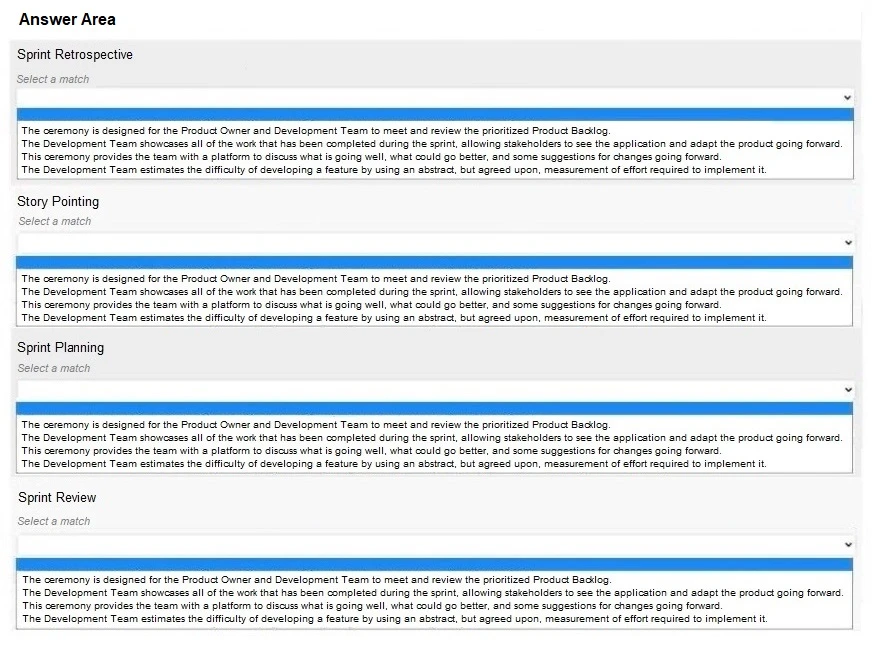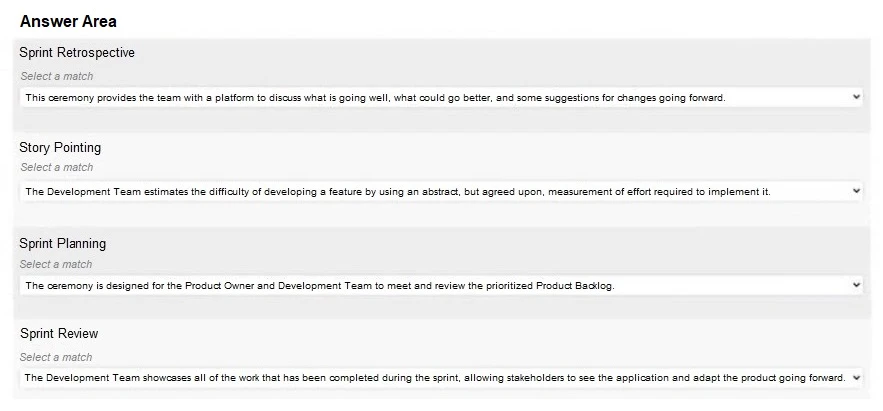You begin by gathering research to help determine how such a feature could be implemented, but no documentation is available.
What should you do next?
When faced with a request for a highly specific and uncommon feature with no available documentation, the best course of action is to ask the Appian Community. The community consists of experienced users and developers who might have encountered similar challenges and can provide insights or solutions. Creating a support case is more appropriate for issues or bugs rather than for feature implementation guidance.
Regular backlog refinement typically occurs during the Build phase. This is when the development team engages in iterative cycles of work and needs to continuously update and prioritize the backlog to ensure that upcoming sprints are well-defined and focused on delivering the most valuable features. It is during this phase that refinement sessions are held to further detail the requirements and address any changes or new findings, thereby keeping the backlog relevant and actionable.
Match each sprint ceremony to its appropriate objective. Each objective may be used once, more than once, or not at all.


In which environment is unit testing performed for the feature?
Unit testing is typically performed in the development environment. This is because unit tests are designed to verify the functionality of individual components or units of code during the development phase. Performing unit tests in the development environment allows developers to catch and fix bugs early before the code is moved to other environments such as testing, staging, or production.
In Scrum methodology, it is the Developers who are responsible for estimating the level of effort for Product Backlog items. They have the technical expertise and understanding required to evaluate the complexity and the amount of work needed to implement the items. The Product Owner manages the Product Backlog and prioritizes items but does not estimate effort. Testers and the Scrum Master also play crucial roles in the process but are not responsible for effort estimation.